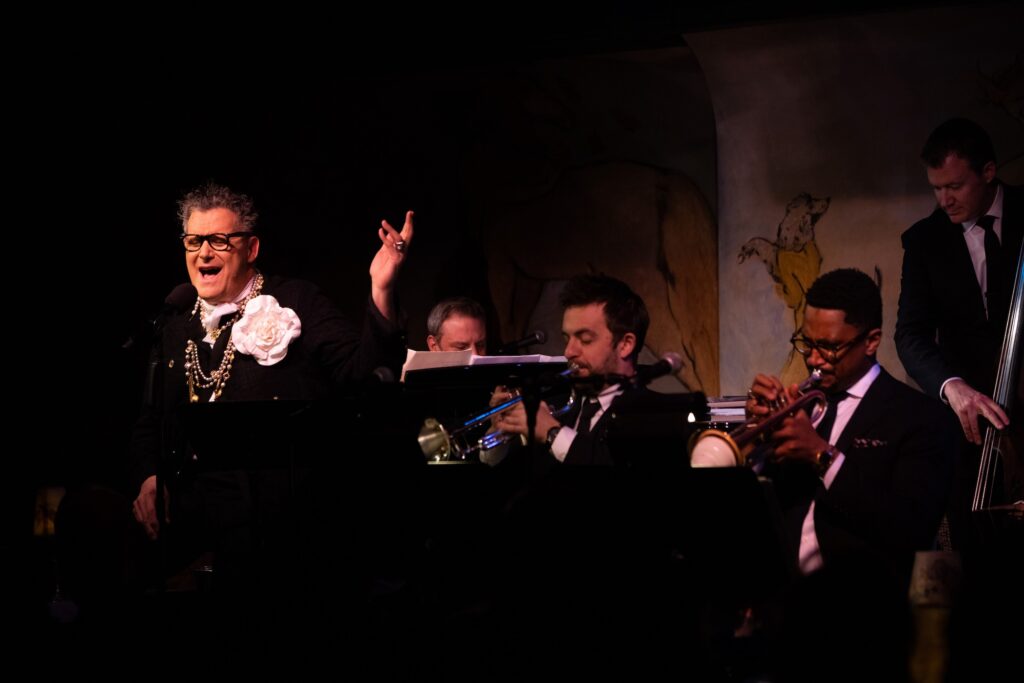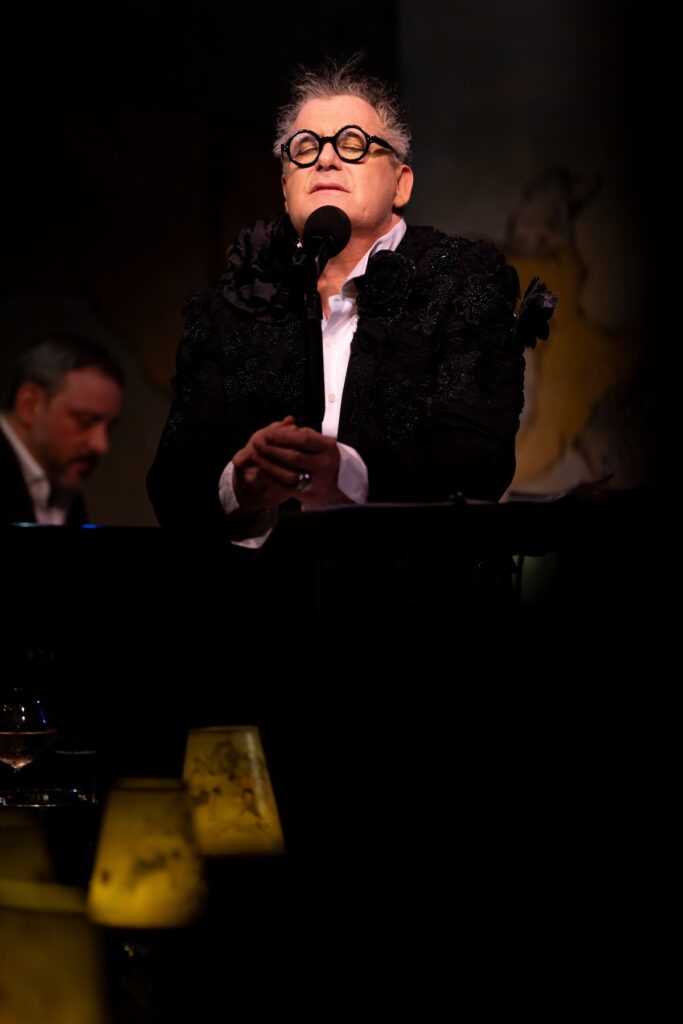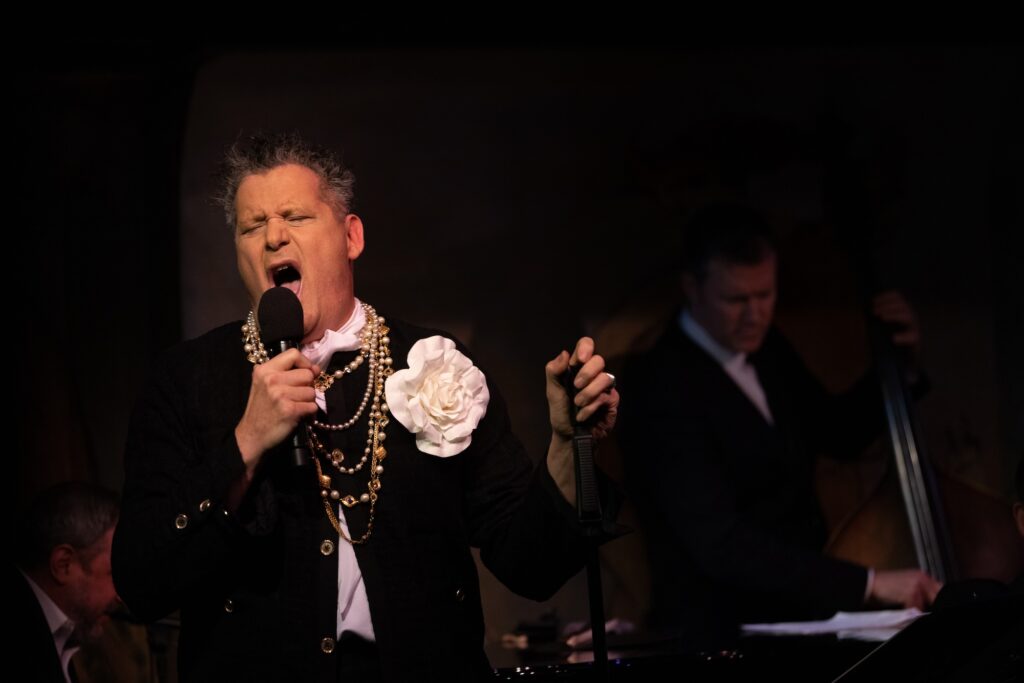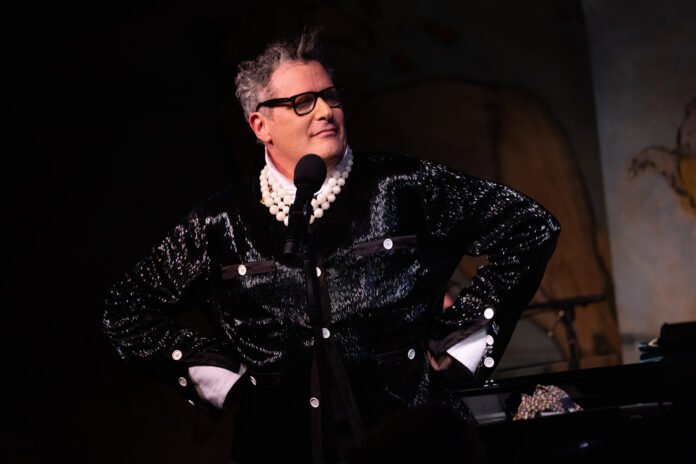Isaac Mizrahi is an artist who refuses to be confined within the crisp lines of a black-and-white Chanel box or wrapped up neatly with a silk ribbon.
In a career spanning fashion, TV, theater, music, literature, and podcasts, the Brooklyn-born polymath has long defied labels.
Now, at 62, he’s relishing his latest act as a cabaret star.
Backed by his acclaimed jazz sextet, Mizrahi is excited to bring his “Life is a Cabaret” show—a signature blend of humor, storytelling, and song—to San Francisco (Fri/25–Sat/26; SF Conservatory of Music’s Caroline H. Hume Concert Hall).
But standing in front of a live audience and sharing pieces of his soul is no small feat, even for a force of nature like Mizrahi, whom Beyoncé name-checked in her 2023 “Break My Soul” Remix.
He describes the act as emotional risk-taking. “It takes an incredible amount of courage for me,” he says. “It feels very transient. It feels like I am transitioning into what I was supposed to be.”
The weight of the word “transitioning” is not lost on Mizrahi. He’s quick to acknowledge its deeper meaning, especially in today’s culture. But he uses it to express an internal journey of truth and self-realization.
Despite decades of success in fashion—couture collections, a Target line, the documentary Unzipped, and red-carpet commentary—Mizrahi now sees the performer in him as central.
“This is what was deeply buried inside of me all these years,” he says.

Indeed, Mizrahi always had one foot on the stage.
“I’ve been doing this before I did clothes,” he says. “I was an actor and performer when I was a kid. It was always my first wish.”
That big dream led him to New York’s LaGuardia High School, the educational institution that produced countless stars and inspired the Fame franchise.
But with the awareness that others in his class were more traditionally “castable,” he shifted to design—another passion he had been nurturing through sketching and sewing. That led him to Parsons and then to industry-defining stints at fashion giants like Perry Ellis and Calvin Klein before launching his brand.
Yet even then, he never let go of the stage, still performing with friends and dabbling in theater.
In 1995, he co-created Unzipped, a documentary chronicling the lead-up to his Fall ’94 collection. The film, which won a Sundance award, was among the first films to shine a cinematic light on the fashion world (decades before The Devil Wears Prada, Halston, and Saint Laurent). Still, it was less about clothes than personality—his own and that of the era’s iconic supermodels: Naomi, Linda, and Cindy. Mizrahi’s charisma practically stole the show.
When Chanel shuttered his couture business in 1998 and again when he re-entered it in 2003, it wasn’t a fall and a comeback—it was the natural rhythm of his creative life.
He already had TV deals lined up with HBO, Oxygen, and Style Network, and he began working on a one-man show that would eventually land on Broadway in 2000, fulfilling a lifelong dream. He also appeared in three Woody Allen films: Celebrity, Small Time Crooks, and Hollywood Ending.
“What scares me isn’t doing something new; it’s not doing something new,” says Mizrahi. “I don’t want to miss anything.”
Since then, his performance résumé has grown, with appearances at venues like Café Carlyle, 54 Below, Bing Concert Hall at Stanford, and the Westport Country Playhouse.
He directs operas (including Peter and the Wolf at the Guggenheim), hosted “The Isaac Mizrahi Show” for seven years, wrote a bestselling memoir (I.M.), judged Project Runway: All-Stars, and launched his podcast, HELLO ISAAC.
Meanwhile, his production company, IM Entertainment, is developing new projects across theater, television, and literature—including Hulu’s “Mid-Century Modern,” starring Nathan Lane, Matt Bomer, and Miss Coco Peru.

On the fashion front, he’s continued to thrive, selling new clothing collections on QVC and releasing a curated archive of one-of-a-kind pieces from 1987 to 2012 for sale to the general public.
It’s no surprise his late friend, composer Stephen Sondheim, once called him a “polymath” — a compliment Mizrahi received with equal parts gratitude and curiosity. Either way, Mizrahi embraces the label. For him, there’s power in doing it all — his way.
But that path hasn’t always been smooth. As a gay Jewish man raised in a conservative religious environment, Mizrahi understands the emotional toll of reconciling personal truth with cultural expectations.
“We are expected to show up in their world on their terms,” he says.
Despite the affection, there are boundaries—his husband, for example, isn’t welcomed in his sisters’ homes. “It’s dangerous and hurtful to who I am,” says Mizrahi.
He doesn’t sugarcoat the pain but offers something deeper: a call for self-liberation.
“You must separate from them,” says Mizrahi. “Because until you can dig into your own identity with absolutely no criteria or terms… you won’t be free.”
His advice is as fierce as it is honest. “Everybody else will tell you, ‘It’s only about your family. You must reconcile with them.’ Well, you listen to your Uncle Isaac, darling,” he says with both gravity and flair.
With decades of accolades and achievements, Mizrahi admits that letting go of familial expectations is a lifelong struggle, but one worth confronting for the sake of authenticity.
That ethos fuels his cabaret work, where music, memoir, and political commentary collide.
“What Sondheim used to say to me was, ‘As a cabaret entertainer, you’re sitting in the lap of the audience,’” he says. That intimacy, he adds, makes the cabaret uniquely personal — and yes, political.
Even in divided spaces like Florida or parts of California, Mizrahi doesn’t shy away from sharing his views. But he always leads with connection.
“I believe in pleasing a crowd,” he says. “I don’t believe in alienating them.”
So, when he dives into tough topics, his humor and warmth bring people along. Audiences laugh—and sometimes, think a little harder, too.

Whatever the medium, Mizrahi insists he’s simply following the road in front of him. “Things just happened,” he says. “I’m not afraid of things happening. What I am afraid of is things not happening.”
What guides him, always, are his feelings. “Not what I thought, not what other people thought, but what I felt,” says Mizrahi.
That emotional compass has steered him through fashion, film, performance, and painful family dynamics. And it’s why his shows resonate so deeply: they come from someone who refuses to live a life dictated by fear or convention.
It also helps to have the support and inspiration of close friends and artistic giants—Sondheim, choreographer Mark Morris, and comedian Sandra Bernhard.
Mizrahi remembers Bernhard reassuring him when he expressed pre-show jitters before the pair took the stage together for the first time. “She’s like, ‘Darling, why are you so scared? They bought the tickets because they like you,’” he recalls. “And she’s right. But I still get stage fright.”
Now, with shows booked across the country, Mizrahi isn’t just entertaining—he’s fully inhabiting the performer he was meant to be. Every song, every story, is a declaration.
“This is what I have been,” he says. “This is who I am.”
And audiences are seeing it, too. They regularly stop him on the street, not just to talk fashion but to rave about his shows.
“I feel very complete now because I am getting attention for it,” says Mizrahi. “People say, ‘You are a really good performer.’ That’s important to me.”
If life is a cabaret, then Mizrahi — glittering, unfiltered, and utterly himself — is its most dazzling host.
LIFE IS A CABARET: ISAAC MIZRAHI April 25-26. SF Conservatory Of Music’s Caroline H. Hume Concert Hall, SF. Tickets and more info here.







